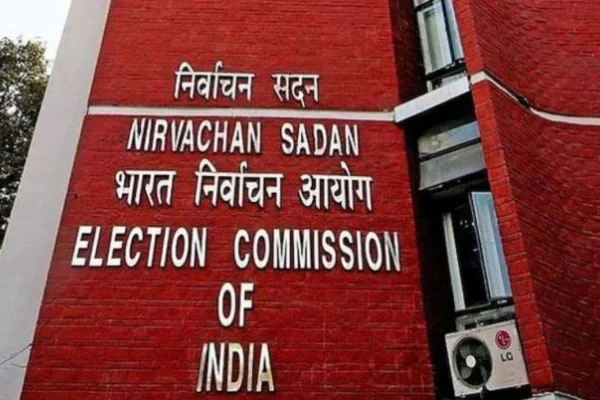With the Lok Sabha elections looming on the horizon, the Election Commission of India (ECI) has taken measures to regulate the dissemination of information during the electoral process. In an official notification, the ECI announced a ban on the publication or publicizing of exit polls in the country from 7 am on April 19 to 6:30 pm on June 1. Additionally, the display of any election-related content, including results of opinion polls or surveys, on electronic media will be prohibited during the 48 hours leading up to the conclusion of the poll.
This decision by the ECI aims to uphold the integrity and impartiality of the electoral process by preventing the premature disclosure of voting trends and outcomes. Exit polls, which seek to forecast the election results based on voter surveys conducted after individuals have cast their ballots, are seen as potentially influencing voter behavior and can undermine the sanctity of the electoral process. By imposing a ban on the dissemination of such polls during the specified period, the ECI seeks to ensure a level playing field for all political parties and candidates contesting in the elections.
In addition to regulating exit polls, the ECI has also outlined the schedule for the Lok Sabha elections, which is set to unfold in seven phases over 44 days, beginning on April 19 and concluding on June 1. The counting of votes is scheduled to take place on June 4. The voting schedule has been divided geographically, with different states and union territories casting their votes on different dates across multiple phases.
During the first phase on April 19, 21 states and union territories will participate in voting across 102 constituencies. Subsequent phases will see varying numbers of states and constituencies casting their votes, culminating in the final phase on June 1, where eight states and union territories will cast their votes across 57 constituencies. Overall, there are over 97 crore eligible voters and 543 Lok Sabha seats up for grabs in these elections.
Aside from the Lok Sabha polls, several state assemblies, including those of Andhra Pradesh, Arunachal Pradesh, Odisha, and Sikkim, will also be going to elections during the same period. Additionally, bye-elections to 25 assembly constituencies in 12 states will be conducted concurrently with the Lok Sabha elections, further adding to the electoral activity during this 44-day period.
The comprehensive electoral schedule and regulations put in place by the ECI demonstrate its commitment to conducting free, fair, and transparent elections in the world’s largest democracy. By meticulously planning the polling process and enforcing guidelines to prevent the premature disclosure of election-related information, the ECI aims to safeguard the democratic principles upon which the Indian electoral system is built.
As the electoral process unfolds over the coming weeks, all stakeholders, including political parties, candidates, and voters, are expected to adhere to the guidelines laid down by the ECI to ensure the integrity and credibility of the electoral process. With the eyes of the nation and the world upon it, the ECI plays a crucial role in upholding the democratic ideals and values that form the foundation of India’s electoral democracy.
